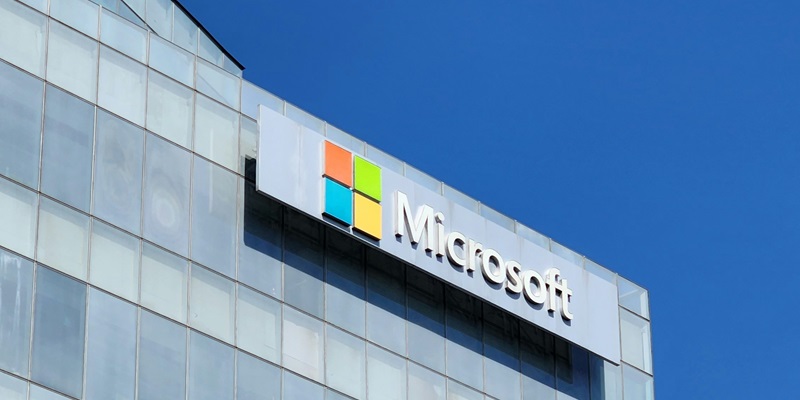Microsoft’s latest foray into personal computing introduces the Copilot+ PCs, an innovative class of devices that promise to infuse artificial intelligence (AI) at the heart of user interactions. These machines not only illustrate Microsoft’s vision but also mark a pivotal stride in the tech landscape, potentially disrupting the status quo and igniting competitive fervor among tech behemoths.
Introducing Copilot+ PCs: Microsoft’s Vision for AI-Integrated Computing
During a much-anticipated event at the Microsoft campus, CEO Satya Nadella pulled the curtain back on the Copilot+ PCs, setting the stage for a new dawn in computing. These PCs come as a testament to Microsoft’s relentless pursuit of integrating AI into the fabric of everyday computing, an ambition aimed at making the digital experience not only more intuitive but also substantially smarter.
The genesis of the Copilot+ PCs has seen a confluence of partnerships with leading manufacturers such as Acer and Asustek Computer, highlighting a strategy that leans towards localizing AI processing. Such a move could signal a shift away from the norm of cloud dependency, thereby redefining notions of computing efficiency and privacy. The wave of Copilot+ PCs will soon crash onto the shores of the market with offerings from Dell, HP, Samsung, and Microsoft itself, broadcasting a clear message: The future of AI in computing is here.
A Closer Look at the Copilot+ PC Hardware and User Features
The vanguard of this new product line, the Surface Laptop, epitomizes the pinnacle of what Copilot+ PCs stand for—it’s a marvel of engineering packed with a Qualcomm Snapdragon X series SoC, which boasts a jaw-dropping AI acceleration capability. Consumers have the luxury of choice with configurations scaling up to 64GB of RAM and a 1TB SSD, delivering a powerhouse that caters to a spectrum of needs and tasks.
Joining the fray is the revamped Surface Pro—a hybrid that blurs the lines between a tablet and a laptop. Beneath the versatility of its design lies the Snapdragon X processor, symbolizing a harmonious blend of form and function. The “Recall” feature represents a standout enhancement within the Copilot+ series, an innovation that essentially constructs a searchable temporal canvas of the user’s digital tapestry, ensuring past activities are just a query away from being unearthed.
Microsoft’s Market Strategy and Sales Expectations
In a bold forecast, Microsoft has placed its chips on the table, with consumer marketing head Yusuf Mehdi pegging expectations to sell tens of millions of these AI-powered PCs in just a year. This optimistic outlook stems from the belief that the integral AI assistants equipped within will be a game-changer, enticing users to embrace the upgrade cycle.
The dip in global PC shipments might have deterred others, but Microsoft stands undeterred, confident in the allure of the Copilot+ PCs. However, with consumer skepticism as a potential barrier, the key to triumph will be how effectively Microsoft can convey the exceptional benefits of these machines and their prowess in elevating personal computing to eager yet discerning audiences.
Positioning Against Industry Rivals and Future Prospects
This unveiling echoes past initiatives aimed at revitalizing the Windows laptop scene, yet it symbolizes a strategic maneuver to assert dominance in a fierce AI race against the likes of Alphabet and Apple. This isn’t just an advancement in the PC market; it’s a gauntlet thrown, challenging competitors in a battle that may well dictate the direction of consumer electronics.
The competition is tough; PC manufacturers are bracing against Apple’s ARM-based silicon reputation for stellar battery life and performance. Microsoft’s response? The Copilot+ PCs. If successful, these devices could cast a shadow over existing players and redefine the landscape of AI-integrated computing, ushering in an age where Microsoft’s innovations become the yardstick by which others are measured.
AI Technology, Software Adaptation, and Performance Demonstrations
Microsoft is pushing the boundaries of personal computing with the introduction of Copilot+ PCs. These devices represent a significant leap forward by integrating artificial intelligence at the core of their functionality. Copilot+ PCs are a testament to Microsoft’s innovative vision and signal a major shift in the technology industry.
The innovation doesn’t stop at simply incorporating AI; these PCs are built to deeply intertwine AI with everyday tasks, making technology more intuitive and user-friendly. By doing so, Microsoft’s Copilot+ PCs are poised to revolutionize the way we interact with our computers, making them more responsive to our needs and activities.
This cutting-edge approach could very well shake up the current tech ecosystem. The integration of AI in personal computing devices is likely to set a new standard for what consumers expect from their machines. As a result, we can anticipate a ripple effect across the tech industry, with competitors striving to match or surpass Microsoft’s advancements.
Moreover, as AI continues to evolve, the capabilities of these Copilot+ PCs are expected to expand, further cementing their position at the forefront of the industry. This strategic move by Microsoft not only showcases their leadership in tech innovation but also challenges other tech giants to step up their game. The implications for the future of personal computing are vast, with AI-driven devices becoming increasingly mainstream and setting new benchmarks for performance, efficiency, and user experience.

